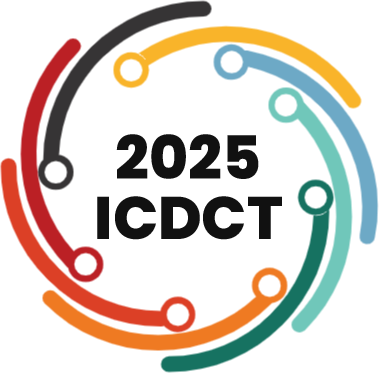The International Conference on Dermatology and Clinical Therapies (ICDCT) 2025 is proud to feature a lineup of distinguished keynote speakers who are pioneers in dermatological research, clinical innovation, and global health.
We welcome colleagues to submit abstracts and deliver oral or poster presentations at ICDCT 2025. Oral presentations will be conducted in English, with a duration of 30-40 minutes. Qualified speakers will be selected through a rigorous review process and announced soon after confirmation.
To become a speaker, please submit your abstract early via the [Online Submission System].
Note: ICDCT 2025 is fully virtual. We will not contact participants regarding travel or accommodations. For official inquiries, please email [info@conferenceemail.com].
Current Speakers
Anthony A. Gaspari, MD
Professor, Department of Dermatology and Cutaneous Biology
Sidney Kimmel College of Medicine, Thomas Jefferson University, Philadelphia, PA
Dr. Anthony A. Gaspari is a renowned dermatologist and immunologist, currently a Professor at Sidney Kimmel College of Medicine, Thomas Jefferson University. He has previously served as Chairman of the Department of Dermatology at the University of Maryland School of Medicine. With over 150 peer-reviewed publications, 25 book chapters, and editorial roles in leading journals like Dermatitis and Journal of Investigative Dermatology, Dr. Gaspari has made significant contributions to the fields of dermatology and immunodermatology. His research and expertise have earned him international recognition, with speaking engagements at global conferences in cities such as Istanbul, Naples, and Berlin.
Rudolf Stadler, MD, PhD
Head of Dermatopathology, University Medical Center Minden, Minden, Germany
Dr. Rudolf Stadler is a highly accomplished dermatologist and pathologist, specializing in dermatopathology and skin neoplasms. As Head of Dermatopathology at University Medical Center Minden, he has an extensive research portfolio with over 11,640 citations, an h-index of 56, and 506 publications. His areas of expertise include melanoma, psoriasis, pediatric dermatology, dermatosurgery, and immunotherapy. Dr. Stadler's groundbreaking work has significantly advanced our understanding of conditions like Merkel cell carcinoma, alopecia areata, and connective tissue diseases. His leadership in dermatologic research and clinical practice continues to shape the field globally.
Taihao Quan, MD, PhD
Research Professor, Department of Dermatology, University of Michigan, USA
Dr. Taihao Quan is a Research Professor at the University of Michigan, specializing in skin aging and age-related diseases. With a PhD from Akita University School of Medicine (Japan) and an MD from Norman Bethune University of Medical Science (China), Dr. Quan has focused his research on molecular mechanisms underlying skin aging, wound healing, and tumor microenvironments. His lab has made significant discoveries on the role of CCN1 protein in altering dermal microenvironments, collagen degradation, and age-related skin diseases. Dr. Quan has authored over 65 peer-reviewed papers and book chapters, supported by NIH grants and the Nathan Shock Center for the Biology of Aging.
Frederick Silver, PhD
Professor, Department of Pathology and Laboratory Medicine, The State University of New Jersey, USA
Dr. Frederick Silver specializes in biomaterials, biomechanics, mechanotransduction, and medical devices, with a focus on the extracellular matrix (ECM) and its role in tissue structure and function. He received his Bachelor's degree in Chemical Engineering from Northeastern University and earned his PhD in Polymer Science & Engineering from the Massachusetts Institute of Technology. Dr. Silver completed his postgraduate training at Massachusetts General Hospital in developmental medicine.
Dr. Silver's current research centers on the extracellular matrix (ECM), the structural scaffold of tissues and organs, composed of collagen fibers, proteoglycans, elastic fibers, and cells. His laboratory investigates the assembly of ECM components into multifunctional tissues that enable mammals to locomote, heal wounds, and store energy through mechanotransduction. His work also explores tissue-engineered ECMs as implants and examines how age-related changes in mechanotransduction contribute to impaired healing and disease.
